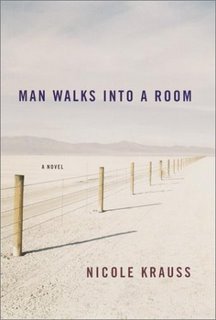Where Jammu was once perceived as an inexperienced and inappropriate choice, she becomes a fount of civic adulations and a symbol for the New St. Louis. Members of Municipal Growth conveniently start revising their opinions of Jammu as, inexplicitly, incidences of bombings and terror related attacks are directed at either them or citizens of the city. It would only seem plausible to draw the necessary connections between Jammu’s arrival on the scene and the oddity of St. Louis being targeted by terrorists, or Indians (that is: Native Americans; an erstwhile, non-extant tribe that miraculously reassembles to terrorize the city and county of St. Louis for past pre-colonial grievances.)
No one but General Norris, a member of Municipal Growth and an unreconstructed character, smells a conspiracy afoot, implausible as this may seem. But this is with good reason: Jammu has managed to extort and blackmail nearly every prominent business and civic leader in St. Louis, amassing the necessary political and logistical power to execute her plan -- to create a real-estate appreciation in downtown St. Louis, an area, not too uncoincidentally, her mother has just recently invested considerable capital in. Nevertheless, Jammu has one final obstacle in Martin Probst, a respected contractor, a paragon of morality, and chairman of Municipal Growth.
And so begins The Twenty-Seventh City, Jonathan Franzen’s ambitious if somewhat circuitous first novel. The plot is dense, populated by a litany of characters with oscillating motives. Of the narratives, and there are many, Martin Probst’s is of primary import. Probst is best know for being the man who built the Arch, so naturally the mantel of probity rests on him while Jammu attempts, indefatigably, to break him, thus assuring her plan’s success. The campaign she wages would surely be without scruples if undertaken by any ordinary person; it is therefore that much worse that the police chief of St. Louis is behind it.
Yet Jammu isn’t your ordinary person -- or pol or public official, for that matter. She is a hardened politically militant socialist of Trotskyite bent. She is also a protégé of Indira Gandhi, a person to whom she owes much for her professional advancement in Bombay. Though, there is a strain of aimless malice in Jammu which strikes me as vapid. It is amazing how Franzen is able to masterly construct this gargantuan plot yet also skimp on his characters’ consciousness. This is particularly the case with Jammu, who is rarely, if only partially, psychologized to the extent of illumination. Insofar as she maintains a shadowy mystic to the characters in Franzen’s novel, she remains almost entirely ineffable to the reader.
Martin Probst, similarly, is fleshed out rather feebly. We understand that moral rectitude is his métier and “accomplishing things” drives him, but beyond that his rigidity and opacity become stifling—his asceticism literally frustrates the reader. Even when General Norris approaches Probst with the voluminous evidence of The Conspiracy and Jammu’s unsavory involvement in it, Martin chides the General for his outlandishness. What Franzen, in my opinion, seems to be saying of conspiracy theories -- possibly his novelistic conceit -- is that they are for ‘weaker minds.’ He says this while having elaborated on a baroque novel of conspiracy. Is this not frustrating? Was this his intention? What begins to happen to Probst, while tragic, could be construed as cathartic -- for the reader, me specifically. Martin reminds me too much of Alfred Lambert from The Corrections, a character he anticipates.
But Franzen is adept when he’s waxing political.There are overtones of Cold War critique and, as the thought strikes me now, nearly everyone is afflicted with the symptoms of a cold. This was a peculiar meme that I had first attributed to merely banal symbolism; but on further analysis it seems clear that Jammu, a committed marxist qua terrorist, represents an ideological infection, and her efforts at fomenting real-estate speculation are directed towards undermining (indulge me) the arbitrary logic of capitalism -- even if it’s only in St. Louis.
However, my understanding of this is still very shallow since, it seems, Franzen is all over the place. If it is anything, The Twenty-Seventh City is an astute commentary on the local and the political. That a small group of political and financially influential citizens can steer the course of a city, thus determining its fate, is not a new argument. Franzen, instead, offers something polemical:
Threatened with the prospect of thinking and deciding, the body politic had surrendered. It embarrassed the commentators -- but only because they failed to place the election within the larger context. Their shame was a measure of their obsolescence. They did not understand that America was outgrowing the age of action. (503)
Here, Franzen is speaking of the media trying to understand lower voter turn out in a St. Louis referendum -- this is in 1988. Franzen is anticipating the mainstream media’s ‘obsolescence’. Voter apathy was nascent but growing after Nixon and more prominent during the Carter administration. The obsolescence of the media was just around the corner. And now the electorate is mature in its apathy.
In the end, The Twenty-Seventh City is a feat, considering that Franzen was only 28 when the novel was published. A strong novel that is beguiling at turns and cast in the mold of epic grander than reality, it augured great things for Franzen. (As evidenced in The Corrections and Strong Motion (soon to be read)) Unfortunately, for me at least, it was also bloated; so heavy was its narrative enterprise that it began to sag at its edges, nearly making its conclusion indecipherable and, retrospectively, its beginnings fugitive.
